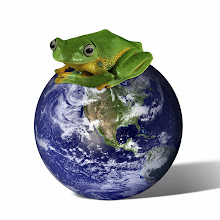
I have heard it said, and I believe it:
The tropical rainforest is important and we should teach its conservation. But it is equally important for an American child to love and value the forest just beyond his own backyard, that he or She may mature into a grown-up who cares.
Only today I have learned of a tiny, unique little flower, believed extinct. In a purely material sense, who knows what pharmaceuticals might have been extracted from it for the benefit of humankind? Thismia apparently had a relationship with local soil fungi. Perhaps it produced botanical chemicals to ward off other fungi or bacteria.
Who knows what a study of its DNA and habitat might have added to the discussion of continental drift, and how it came to be so far from its only living relatives in Australia.
You see, this little flower, thismia, wasn't found on some pristine Montana prairie, not even in a deep Smoky Mountains forest. It was found, in 1916, in a wetland in ...
... Chicago.
And since the initial report by a sharp-eyed scientist, it has never been seen again. And in the years following, someone smothered the site in fill dirt. And no one really cared, because it was Chicago after all, a city, not some wild wilderness. And so we may never know its story.
http://chicagowildernessmag.org/issues/summer2004/thismia.html
Friday, October 15, 2010
In Chicago, of all places
Posted by
Eastcoastdweller
at
10:18 AM
0
comments
![]()
Labels: Chicago, conservation, plants
Friday, February 26, 2010
Of Orcas and such
When I first heard the news about the trainer in Florida recently killed by an agitated orca (killer-whale) at some sea-life park down there, my thoughts were:
Why the hell don't they let the poor beast go?
What height of cruelty to take an animal meant by nature to wander the high seas, and force it to spend its life in a cramped tank!
Later, listening to more discussions, I have changed my views a little.
We are told that the orca would have no idea how to live life on its own, having spent its life in captivity. Orcas are social animals, with strong family structures. Without a "pod" of its own, it would be virtually helpless.
So this particular animal endures the lesser of two evils -- captivity but steady food and some degree of social contact with its kind.
Then I thought, well, at least ours will probably be the last generation that even sees these marine mammals in captivity, since it is now illegal to grab them out of the wild.
Then I thought, well, is that a good thing? You cannot love what you do not know. The child who visits a sea life park and sees, up close, in the flesh, one of these powerful and enigmatic animals and feels the salt spray upon his or Her face and hears the mighty creature utter its unique song -- in short, experiences the beast for his or Her self, will never forget it. And chances are, that child will grow up with at least some degree of awe and appreciation and sympathy for the creatures of the deep. Given the chance, they will support marine conservation measures. Perhaps they will think twice about dumping paint down a storm drain.
If a few animals must spend life in captivity for that greater good, perhaps such captivity is not an unmitigated evil.
Posted by
Eastcoastdweller
at
11:58 AM
12
comments
![]()
Labels: animals, children, conservation, marine life, orcas















